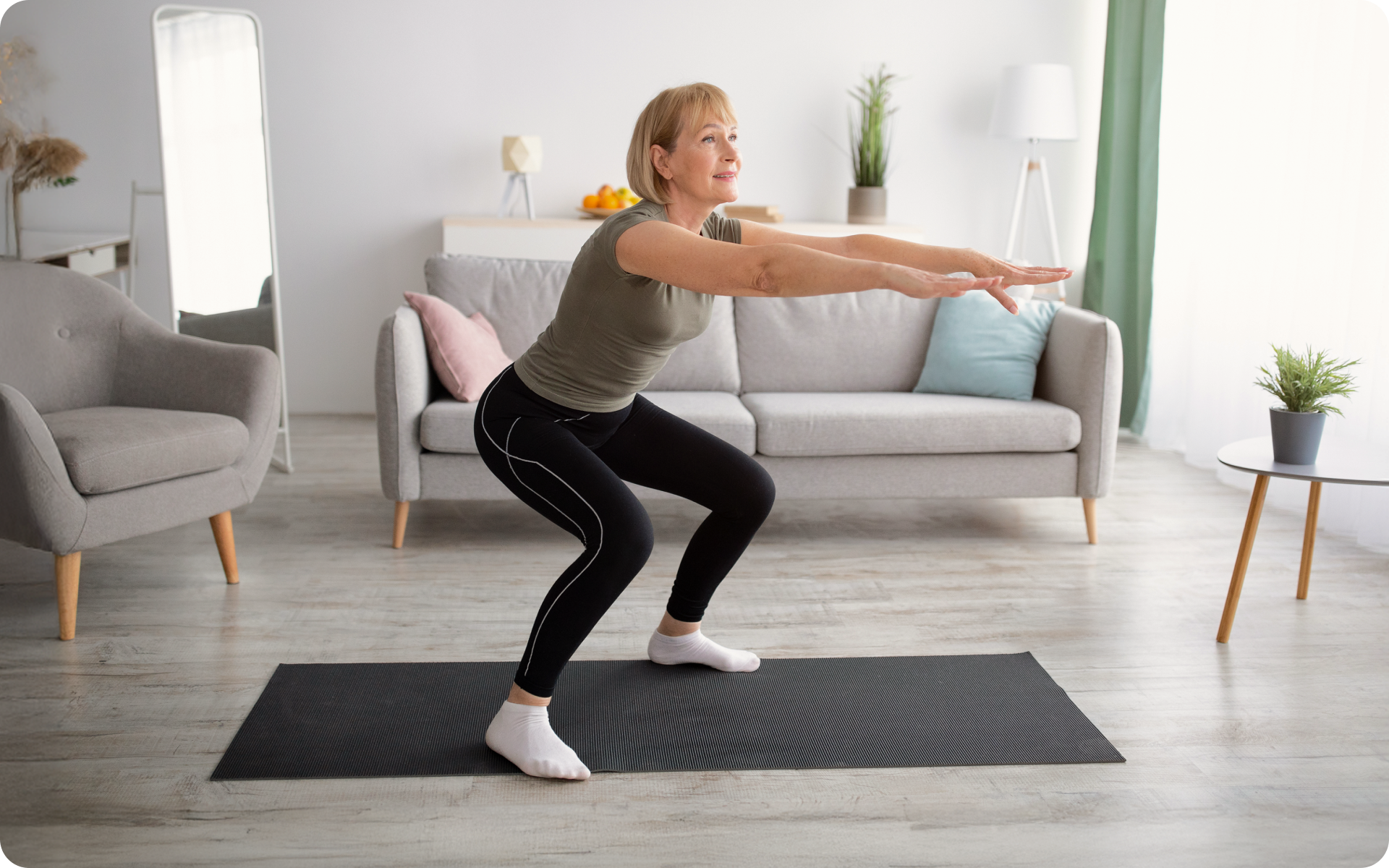There are many ways to measure success when you start running. How far, how fast, and how often you run are all important metrics. But one of the most tangible and rewarding measures of progress is the number of calories burned. When it comes to running a mile, the number of calories burned can vary greatly depending on factors such as weight, speed, and intensity. By understanding how to maximize your calorie burn during each mile, you can get more out of every run. This involves strategic planning, incorporating interval training, and focusing on maintaining an elevated heart rate. In this article, we’ll delve deeper into the specifics of running 1-mile calories burned and provide you with actionable tips to enhance your results.
Get your personalized
meal plan!
How Many Calories Will A 1-Mile Run Burn?
On average, running a mile burns between 100 and 150 calories. However, this is a rough estimate and the actual number can vary based on your speed, distance, body composition, age, and gender.
Firstly, the speed at which you run can significantly impact the number of calories burned. Running at a faster pace will generally burn more calories than running at a slower pace over the same distance due to the increased intensity and energy required.
Secondly, your body composition. Individuals with more muscle mass tend to burn more calories than those with less because muscle burns more energy than fat, even at rest (4).
Thirdly, your age. As you get older, your metabolism slows down, which means you burn fewer calories both at rest and during physical activity (1). Therefore, a younger person will typically burn more calories running a mile than an older person of the same weight, height, and gender.
Fourthly, gender also plays a role. Men generally have more muscle mass and a higher basal metabolic rate (BMR) than women, which means they typically burn more calories both at rest and during exercise.
Finally, the distance you run obviously matters. The longer you run, the more calories you burn. However, it’s important to note that the calorie burn per mile doesn’t necessarily increase linearly with distance. For example, running two miles won’t necessarily burn twice as many calories as running one mile due to the body’s increasing efficiency as it warms up.
How Many Calories Does 8-Minute Mile Running Burn?
If you’re running at a speed of 7.5 mph (which equates to an 8-minute mile), a person weighing 180 pounds might burn around 110-115 calories. This figure can increase or decrease based on the individual’s weight and metabolic rate.
Read More: Walking 1 Mile Calories: A Detailed Breakdown
How Many Calories Does 1 Mile Running In 15 Minutes Burn?
If you’re running at a speed of 4 mph (which equals a 15-minute mile), an individual who weighs 180 pounds might burn around 75-80 calories. Again, this number can fluctuate based on your personal weight and metabolic rate.
How To Maximize Your 1-Mile Calorie Burn?
If you want to maximize your calorie burn when running a mile, incorporate interval training. This involves alternating between periods of harder and easier running.
For example, you can sprint for 30 seconds then walk for one minute and repeat this cycle several times throughout your run. Not only will this help maintain a higher heart rate, which means more calories burned, but it also prevents boredom and keeps your body guessing.
You could also add short bursts of speed throughout your run. For example, you sprint for 15 seconds every 5 minutes or so. This will help keep your heart rate elevated and burn more calories. Below are other tips to help you maximize your calorie burn:
- Try running hills. The incline will make it harder for your body to move, which means more calories burned.
- Keep your heart rate elevated during your run. You can wear a heart rate monitor to keep your heart rate in check. When your heart rate is higher, your body will burn more calories.
- Increase the distance you are running. Running longer distances can burn more calories in one session. Gradually increasing your distance over time will help to improve your endurance and calorie burn.
- Make sure you are properly hydrated and fueled. Making sure you have sufficient fuel in your body before each run can maximize your energy and give your body the fuel it needs to burn more calories before each run.
- Modify your treadmill running. If you are running on a treadmill, increase the incline or add some speed bursts to increase the intensity and burn more calories.
- Focus on your posture. Ensuring that you have good form throughout your run can reduce the risk of injury and maximize your calorie burn.
Whether you’re looking to simply pep up your fitness routine, jazz up your diet with mouth-watering low-calorie recipes or want to get your act together and significantly drop that number on your scale – BetterMe app has got you covered! Improve your body and revamp your life with us!
Does Running 1 Mile Do Anything?
Running 1 mile can do a lot of great things for your physical and mental health:
Improves Cardiovascular Health
Running a mile can help strengthen your heart and reduce the risk of heart disease (6). It increases your heart rate, which helps improve cardiovascular fitness by strengthening the heart and reducing blood pressure.
Aids In Weight Management
Running is a great way to burn calories. Depending on your weight and pace, you can burn between 100 and 150 calories by running a mile, which can contribute to weight loss and management (6).
Boosts Mood
Running releases endorphins, often known as “feel-good” hormones, which can help lift your mood and combat stress and anxiety (2).
Strengthens Muscles And Joints
Regular running can help build strength in your legs and core, and it can also improve joint health and bone density, reducing the risk of osteoporosis (6).
Improves Lung Capacity
As a cardiovascular exercise, running can help improve your respiratory system and increase lung capacity, making everyday activities easier (9).
Enhances Brain Health
Regular physical activity like running can boost memory and cognitive function. It can also slow brain aging and help prevent neurodegenerative diseases (2).
Improves Sleep
Regular exercise like running can help improve the quality of your sleep. It helps regulate your circadian rhythm, the body’s internal clock that signals when it’s time to sleep and wake up (7). Better sleep can lead to improved mood, higher energy levels, and better overall health.
Boosts Immune System
Moderate-intensity exercise, such as running a mile, can boost your immune system and help fight off infections. Physical activity can help flush bacteria out of the lungs and airways, increase the circulation of antibodies or white blood cells, and raise your body temperature, all of which could help your body fight illness more effectively (5).
Increases Lifespan
Regular running, even just a mile a day, has been associated with increased lifespan. A study published in the Journal of the American College of Cardiology found that runners have a 30% lower risk of death from any cause and a 45% lower risk of death from heart disease or stroke (3).
Read More: How Many Calories Does 100 Squats Burn?
Enhances Skin Health
Regular exercise like running can improve your skin’s appearance. By increasing blood flow, running helps nourish skin cells and keep them vital. Blood carries oxygen and nutrients to working cells throughout the body, including the skin. In addition to providing oxygen, blood flow also helps carry away waste products, including free radicals, from working cells (8).
Does Running 1 Mile Burn Fat?
Running a mile regularly can help burn fat, as long as it is part of an overall healthy lifestyle. Running helps boost your metabolism and burn calories, which can help you lose weight if you maintain a healthy diet (6).
In addition to burning fat, running also helps build muscle. Over time, muscle mass will increase your BMR (basal metabolic rate), which means you’ll burn more fat even when you’re not running (4).
To help further understand how running works for fat loss, we’ll take a look at the concept of “net calories”. Net calories refer to the total number of calories you burn during a day, including exercise and BMR.
To lose weight, you need to be in a “calorie deficit”, which means burning more calories than you consume. A consistent calorie deficit allows your body to tap into stored fat as a source of fuel.
Therefore, running one mile regularly can help you burn fat over time by maintaining a calorie deficit, while also eating a healthy diet.
Is Running 1 Mile A Day Enough To Lose Weight?
Running one mile a day can contribute to weight loss, but it may not be enough on its own, especially for significant or rapid weight loss. However, if your diet is high in calories, running one mile a day might not create a significant enough calorie deficit to achieve weight loss.
Additionally, as you lose weight and your body becomes smaller, it burns fewer calories both at rest and during activity, so weight loss could slow down over time unless adjustments are made to your diet and/or exercise regimen.
If you struggle to even flirt with the idea of giving up your favorite foods or working out till your legs give way – BetterMe app is here to breathe a fresh perspective into the way you view the weight loss process! Check out the app and experience the fun side of fitness and dieting with BetterMe!
How Many Steps To Burn 500 Calories?
On average, it takes between 10,000 and 16,000 steps to burn approximately 500 calories.
This range is quite wide because the exact number of calories burned can fluctuate based on your individual circumstances. For instance, if you’re heavier or walk at a faster pace, you’ll burn more calories. Conversely, if you’re lighter or walk at a slower pace, you’ll burn fewer calories.
The Bottom Line
Running one mile can burn around 100-150 calories on average, though this can vary based on factors like weight, pace, and metabolism. To maximize results from your one-mile run, consider incorporating interval training, maintaining a consistent routine, and complementing your running with a balanced diet and strength training exercises. Remember, every step counts towards a healthier lifestyle.
DISCLAIMER:
This article is intended for general informational purposes only and does not serve to address individual circumstances. It is not a substitute for professional advice or help and should not be relied on for making any kind of decision-making. Any action taken as a direct or indirect result of the information in this article is entirely at your own risk and is your sole responsibility.
BetterMe, its content staff, and its medical advisors accept no responsibility for inaccuracies, errors, misstatements, inconsistencies, or omissions and specifically disclaim any liability, loss or risk, personal, professional or otherwise, which may be incurred as a consequence, directly or indirectly, of the use and/or application of any content.
You should always seek the advice of your physician or other qualified health provider with any questions you may have regarding a medical condition or your specific situation. Never disregard professional medical advice or delay seeking it because of BetterMe content. If you suspect or think you may have a medical emergency, call your doctor.
SOURCES:
- [Aging, basal metabolic rate, and nutrition] (1993, nih.gov)
- Exercise for Mental Health (2006, nih.gov)
- Leisure-Time Running Reduces All-Cause and Cardiovascular Mortality Risk (2015, nih.gov)
- Muscle cells vs. fat cells (2020, medlineplus.gov)
- Physical exercise as a tool to help the immune system against COVID-19: an integrative review of the current literature (2021, nih.gov)
- Running and jogging – health benefits (2022, betterhealth.vic.gov.au)
- The bidirectional relationship between exercise and sleep: Implications for exercise adherence and sleep improvement (2015, nih.gov)
- The association between activity levels and skin moisturising function in adults (2021, nih.gov)
- Your lungs and exercise (2016, nih.gov)















